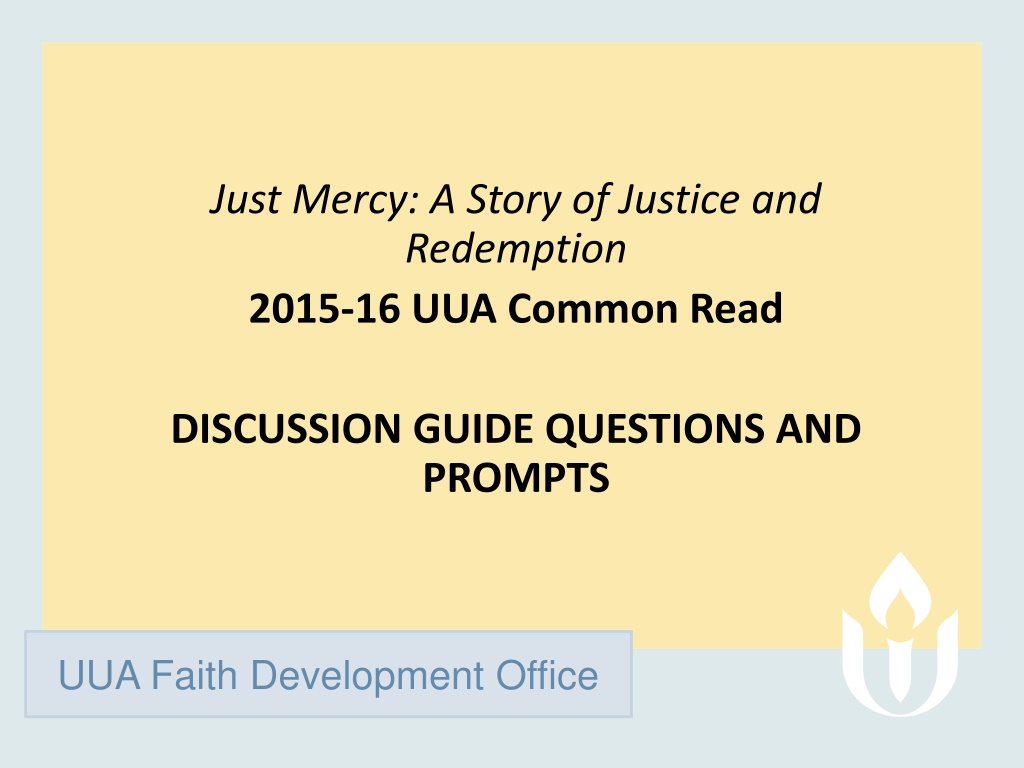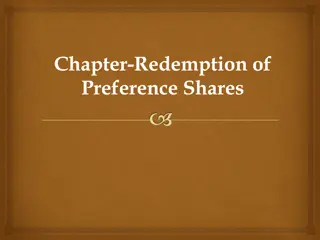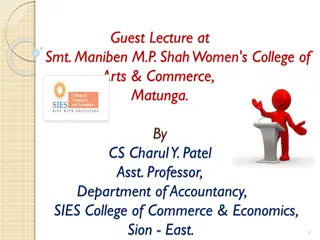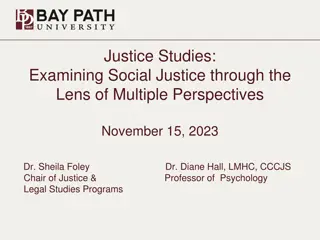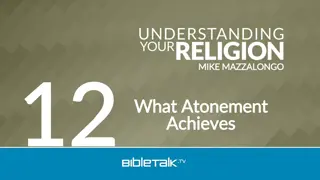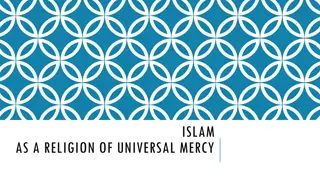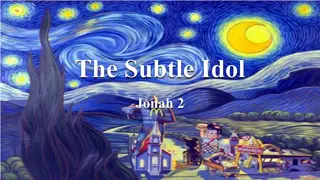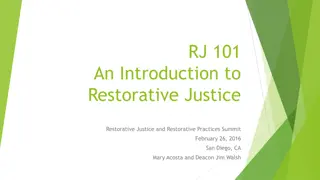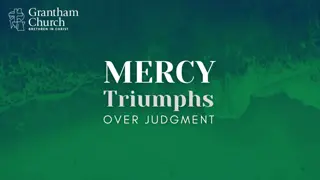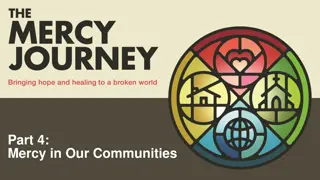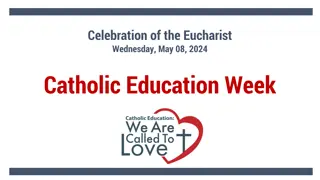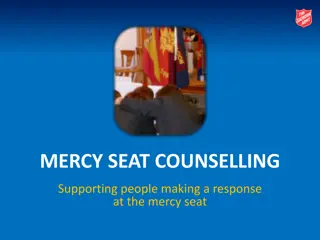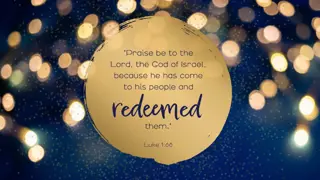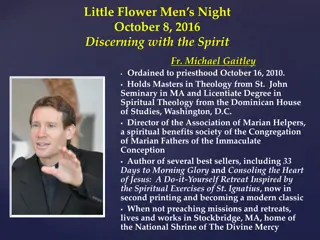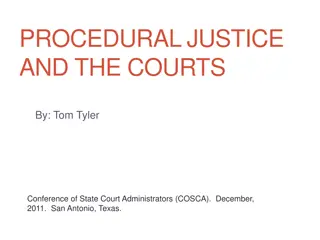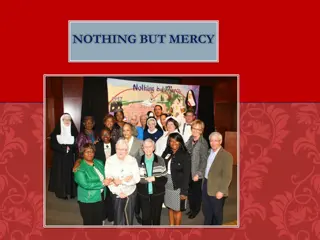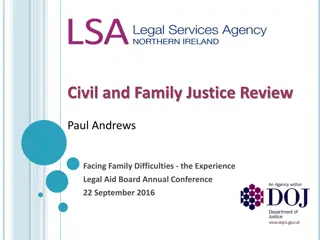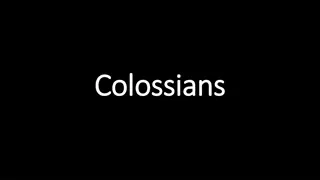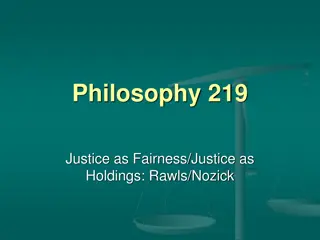Discussion Guide for "Just Mercy: A Story of Justice and Redemption
Explore thought-provoking discussion questions and prompts based on the book "Just Mercy" by Bryan Stevenson. Delve into topics such as justice, mercy, redemption, and spiritual lessons while reflecting on personal experiences and perspectives. Encourages respectful dialogue and ethical discernment within a group setting.
Download Presentation

Please find below an Image/Link to download the presentation.
The content on the website is provided AS IS for your information and personal use only. It may not be sold, licensed, or shared on other websites without obtaining consent from the author. Download presentation by click this link. If you encounter any issues during the download, it is possible that the publisher has removed the file from their server.
E N D
Presentation Transcript
Just Mercy: A Story of Justice and Redemption 2015-16 UUA Common Read DISCUSSION GUIDE QUESTIONS AND PROMPTS UUA Faith Development Office
SINGLE SESSION UUA Faith Development Office
Covenant We promise to speak from our own experiences and perspectives. We promise to listen respectfully to the experiences and perspectives of other people. We promise to pay attention to the group process, making sure that everyone has the opportunity to speak and to listen. We promise to use this time as an opportunity for ethical, religious, and spiritual discernment. We promise to listen to one another for understanding rather than to debate, even when the conversation touches on politics or public policy. UUA Faith Development Office
First Set of Questions What surprised, troubled, or challenged you from the book, Just Mercy? What stories from the book stick with you? UUA Faith Development Office
Second Set of Questions Bearing in mind Stevenson s assertion that each of us is more than the worst thing we ve ever done, what role should mercy play in the way we respond to those who have committed crimes? What life experiences help you relate to the themes of the book- justice, mercy, and redemption? UUA Faith Development Office
Third Set of Questions What spiritual lessons do you draw from those who find their way to hope even in seemingly hopeless circumstances? What spiritual lessons do you draw from the author s tenacity in the face of what many might find overwhelming? From what sources did he draw hope? UUA Faith Development Office
THREE SESSIONS (SESSION 1) UUA Faith Development Office
Covenant We promise to speak from our own experiences and perspectives. We promise to listen respectfully to the experiences and perspectives of other people. We promise to pay attention to the group process, making sure that everyone has the opportunity to speak and to listen. We promise to use this time as an opportunity for ethical, religious, and spiritual discernment. We promise to listen to one another for understanding rather than to debate, even when the conversation touches on politics or public policy. UUA Faith Development Office
Questions What surprised, troubled, or challenged you from the book, Just Mercy? What stories from the book stick with you? UUA Faith Development Office
THREE SESSIONS (SESSION 2) UUA Faith Development Office
Questions Where in Stevenson s book did you see the seeds of restoration come to astonishing life? What stories or events stay with you? What spiritual lessons do you draw from those who find their way to hope even in horrific circumstances? What spiritual lessons do you draw from the author s tenacity in the face of what many might find overwhelming? UUA Faith Development Office
THREE SESSIONS (SESSION 3) UUA Faith Development Office
First Set of Questions Where in Stevenson s book did you see the seeds of restoration come to astonishing life? What stories or events stay with you? What spiritual lessons do you draw from those who find their way to hope even in horrific circumstances? What spiritual lessons do you draw from the author s tenacity in the face of what many might find overwhelming? UUA Faith Development Office
Second Set of Questions As you were reading, did you respond differently to those who were incarcerated and sentenced for a crime they did not commit and those who were incarcerated for a crime they did commit? If your responses were different, what values and experiences account for your different responses? What experiences in your life connect you with those who have committed crimes and are in need of compassion and mercy? UUA Faith Development Office
